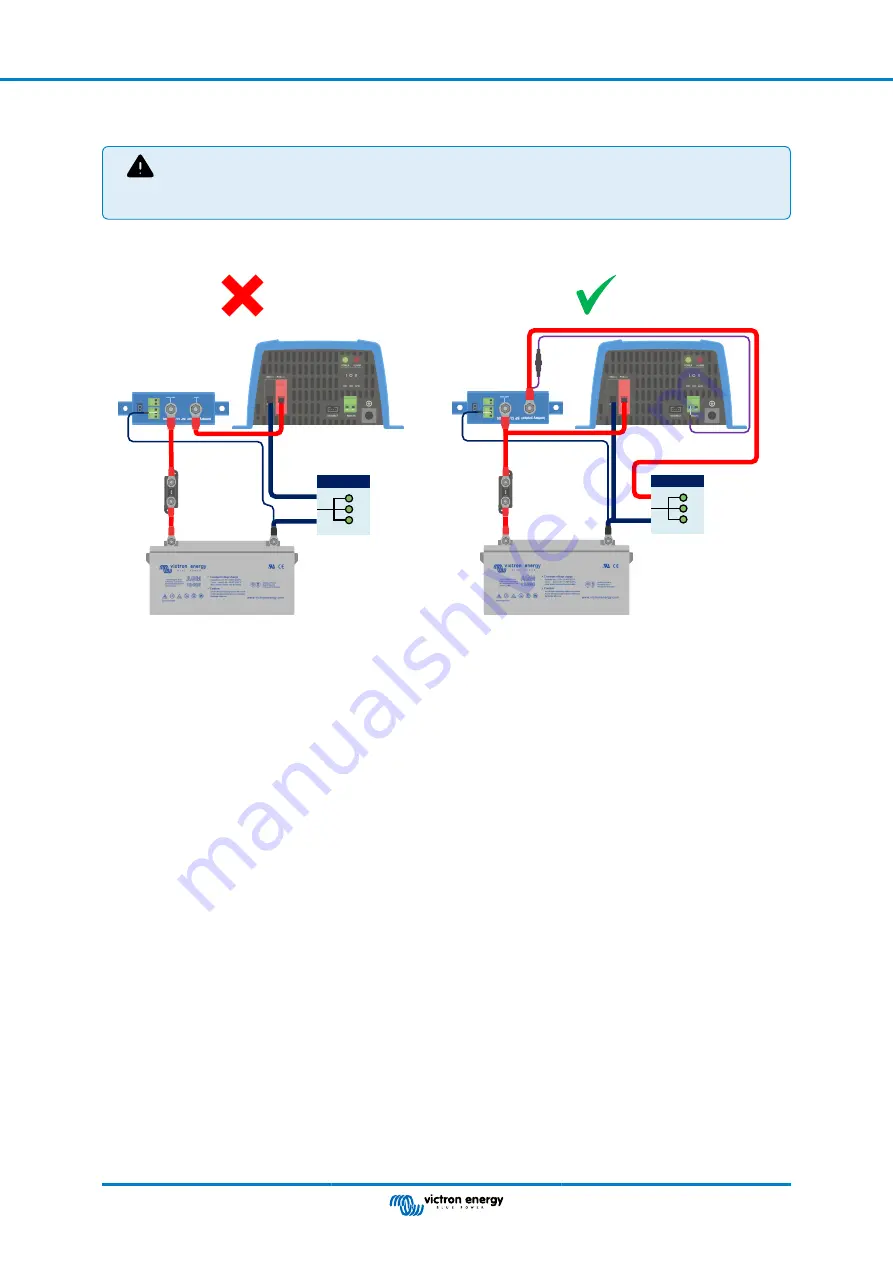
3.2. Warning when connecting inverters and inverters/chargers
Under no circumstances is it permitted to connect inverters or inverter/chargers to a BP via their DC inputs, a
reverse current may flow that damages the BP. In case you want to control an inverter or inverter/charger via
a BP, you must use the BP to control the inverter or inverter/charger via its remote port. See example below.
Note that the image shown below is an example for all BatteryProtect models including the smart models.
DC loads
DC loads
Left image: Inverter DC input connected via a BatteryProtect - strictly forbidden
Right image: Inverter controlled by its remote port via BatteryProtect
BatteryProtect 12/24V
Page 4
Installation and wiring examples

































